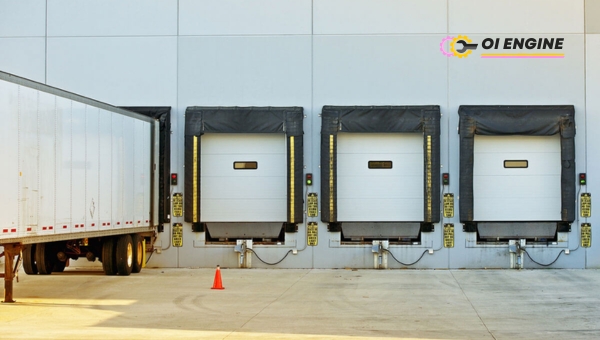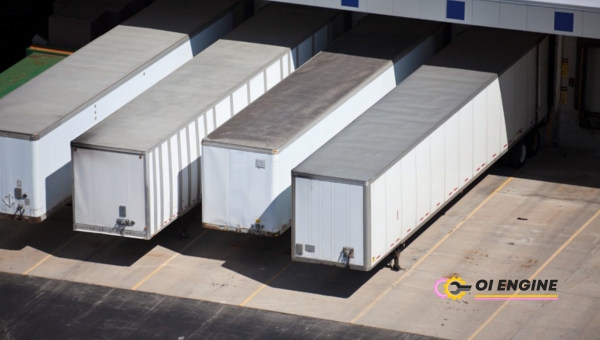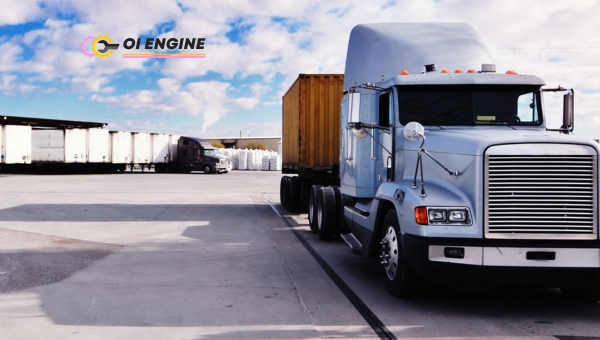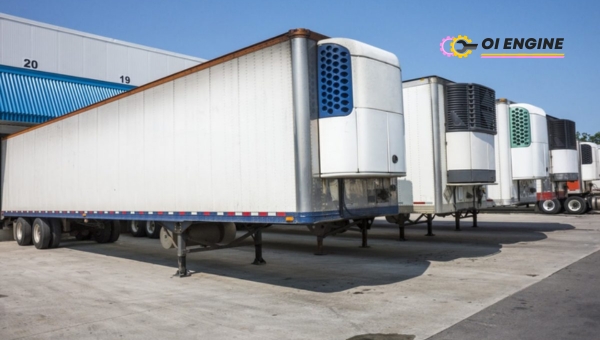Have you ever wondered how goods keep moving even when trucks switch trailers? This is where Trailer Interchange Coverage comes into play, and it’s essential if you’re part of the trucking world.
Imagine driving a truck and at some point, you need to swap trailers with another driver to keep those shipments rolling.
What happens if something goes wrong during that swap? That’s exactly why you need to read on – I’m here to pull back the curtain on this important insurance coverage.
When we talk about Trailer Interchange Coverage, it’s insurance specifically tailored for situations when truckers exchange their trailers with others.
If any damage happens to the trailer while it’s not hitched to your tractor, this type of protection can save you from shelling out tons of cash for repairs or replacement. It’s like having a safety net that catches costly surprises before they hit your wallet.
Also Useful: Safeguard With Physical Damage Insurance Coverage
What Is Trailer Interchange Coverage?
Imagine I’m a transporter who worries about potential damages to my trailer while in transit. Now, suppose there exists an insurance policy preventing me from bearing all repair costs by myself in case of an unfortunate event.

Opposed to self-insurance, my worries significantly decrease, right? That’s exactly what trailer interchange coverage is!
A unique form of motor truck cargo insurance that provides financial protection against damages or loss to trailers under your custody for transportation purposes.
It’s a safety net shielding us from hefty repair bills due to accidents that are beyond our control.
The purpose isn’t merely limited to economic safeguarding but also enabling smoother operations by minimizing stress over potential vehicle damage or loss.
How does trailer interchange coverage work?
Delving into how trailer interchange coverage works might seem complex at first sight but trust me when I say it’s quite straightforward once you get the hang of it!
First, you need something called a ‘trailer interchange agreement’. This document confirms that you and another party have mutually agreed upon swapping trailers allowing continuous transport without needing driver changes.
Once this agreement gets signed, any damage caused during transit is covered by this insurance policy (as per defined circumstances), even if I’m not personally at fault! Here’s where my anxieties about accidents and expensive repairs go out the window.
For example: let’s say there’s an accident leading to damages amounting to $5k towards repairs and my deductible is $2k; I’d be required to pay only $2k instead of the full amount – courtesy Trailer Interchange coverage!
But remember, like all things, it comes with terms and conditions that define exact coverages. So, be sure to read up on those before agreeing.
What is a trailer interchange agreement?
A trailer interchange agreement is, simply put, a mutual contract initiated between two parties where both aim to exchange trailers.
Consider it as a well-defined understanding that allows me to hand over my trailer to another party and in return, I can take possession of their trailer.
The primary intention behind such an agreement is to promote increased efficiency and reduce downtime while shipping goods. In other words, it mainly ensures seamless functioning within the freight industry.
What keeps me captivated about this concept isn’t just its role in boosting productivity but also its capacity to safeguard both parties’ interests involved in the exchange process.
To elaborate further, imagine being held responsible for damages incurred on the exchanged trailers or even worse, thefts. That’s where our next topic swoops in.
What is covered in a Trailer Interchange Agreement?
Getting on board with any contract or policy means understanding what areas are covered under it. So when we talk about what’s included under the hood of a trailer interchange agreement, here are some major points:
- Damage Repair Coverage: Any physical damage caused to an exchanged trailer becomes my concern once I have taken possession of it from another party according to our agreed contract terms.
- Theft Coverage: In rare instances like theft occurring during my possession period of an interchanged vehicle, this kind of coverage saves me.
- Collision Coverage: They offer assistance by providing appropriate coverage, be it road mishaps or accidental collisions occurring due to unforeseen circumstances.
It should be noted that every policy comes along with its specific terms and conditions tailored according to individual needs and preferences which dictate exactly what kind of damages or instances are covered under it.
Recognizing Trailer Interchange Coverage Beneficiaries
Understanding who can most benefit from Trailer Interchange Coverage is paramount to ensuring it is used effectively and adds real value.

Just as not every vehicle requires the same type of insurance, the need for this specific coverage also varies based on the individual or company’s distinct circumstances.
Who needs Trailer Interchange Coverage?
Getting right down to it, if you operate in the trucking industry and frequently find yourself in situations where trailers are switched between different drivers or companies, then you should certainly consider getting trailer interchange coverage. This could primarily include:
- Freight or trucking companies: It’s standard practice for these businesses to utilize various trailers during their daily operations. Whether they’re transporting their goods or handling deliveries on behalf of others, having appropriate coverage ensures potential damages or losses are taken care of.
- Independent truck owners/operators: Many independent operators make use of leased trailers to carry out their jobs. Since they might not possess direct ownership of these trailers, possessing trailer interchange insurance helps protect them from any liabilities.
- Intermodal truckers: Typically involved in transferring cargo between different modes of transportation (like ship to train etc.), these individuals switch trailers regularly which invariably increases risk exposure.
In simpler terms, if your operations include taking possession and responsibility for other people’s equipment (trailers), it becomes integral to invest in trailer interchange coverage as a preventive measure against unexpected mishaps and losses.
Also Related: 8 Top Rated Non-Trucking Liability Insurance Providers
Drawing Comparison on Insurance Policies
In an industry as vast as trucking, it’s critical to understand the differing types of insurance coverage available.
This can be confusing, but I’ll help you paint a clearer picture by comparing two specific types: Trailer Interchange Coverage and Non-owned Trailer Insurance.
Both have their unique benefits and uses, so understanding these differences will help you choose the right one for your business.
Trailer Interchange Coverage
Trailer Interchange Coverage provides financial protection for damage or loss to trailers that are on loan or in your possession due to a trailer interchange agreement.
As someone driving another company’s trailer filled with valuable goods, it’s crucial to have this type of insurance.
- It comes in handy if something unexpected happens like theft, fire, or collision.
- It covers the cost of repair or replacement of the trailer and its contents.
- It doesn’t matter who is at fault; this coverage still applies.
However, these benefits come at a price — Trailer Interchange Coverage tends to be more expensive than Non-owned Trailer Insurance because it offers broader protection.
But if your business regularly participates in trailer interchange agreements, this investment might be worth every penny.
Non-Owned Trailer Insurance
On the other hand, Non-owned Trailer Insurance is there for situations where you’re hauling a trailer you don’t own but are legally responsible for — especially when there’s no formal interchange agreement.
- This type of policy covers physical damage resulting from a collision with other vehicles or objects.
- The cost associated tends to be lower than Trailer Interchange Coverage because its scope is less broad.
- Unlike the earlier policy though, this insurance will only apply if you’re deemed responsible for causing the damage.
Despite typically being cheaper than its counterpart – non-owned coverage might fall short when dealing with certain damages such as theft or fire unless specifically outlined in your policy. Therefore getting clear about expectations before taking up either cover is vital.
Both forms of protection have their place in the trucking world and your choice should be guided by the nature of your operations – frequent interchanges or occasional responsibility for non-owned trailers.
Exploring Policy Details
Delving deeper into Trailer Interchange Coverage, it’s essential to understand the terms and restrictions that come with a standard policy.

Having a grip on the cost range for this type of insurance would be indispensable in decision-making.
So let’s explore in detail these elements: the trailer interchange limit and the cost of Trailer Interchange Insurance.
What is a trailer interchange limit?
When talking about Trailer Interchange Coverage, an often-mentioned term is ‘trailer interchange limit.’ It refers to the maximum amount that your insurer would pay in case any damage happens to the trailers under your agreement.
Every policy invariably comes with a set of rules and limitations – these are what we call policy limits or coverage limits.
The cap will vary depending on the insurer you choose and might as well be influenced by your needs.
Usually, policies allow you to select an optimal coverage amount ranging anywhere between $20,000-$30,000 or more per trailer. Remember that opting for higher limits may result in increased premium costs.
However important it might sound, do not decide merely to look at these figures alone as they are just part of a larger picture. Be sure to thoroughly scrutinize all aspects before making up your mind on one.
Delving into the cost of Trailer Interchange Insurance
Just like any other insurance policy out there – be it auto insurance or home insurance – there are quite several factors influencing the price range for Trailer Interchange Insurance as well:
- The desired coverage limit: The higher your chosen coverage amount; correspondingly higher your premium.
- Specifications about trailers: Age, type, and value – all contribute towards determining cost.
- Your business credentials: Certain specific factors linked exclusively with your business also matter – like annual revenue etc.
- Agreement terms: Aspects included within the agreement’s framework along with their intricacies influence costs too.
You can expect premiums typically to vary anywhere between $100 to $1,500 per year for each trailer. Do keep in mind these figures are ballpark and may considerably vary based on the factors mentioned above.
What’s being emphasized is budgeting an appropriate amount for this insurance policy within your business expenditure – making accurate estimations can bring clarity into this entire process while ensuring you’re not caught off-guard with unexpected premiums.
It would also be wise to request quotes from various insurers and weigh the benefits against costs before making a final decision.
5 Best Trailer Interchange Coverage
Choosing a trailer interchange coverage provider is a vital step in protecting my business. After extensive research, I’ve identified five insurance companies that have stood out due to their reliable services, reasonable prices, and excellent customer care. Let’s take an in-depth look at each one of them.
1. OOIDA
The Owner-Operator Independent Drivers Association (OOIDA) offers comprehensive trailer interchange coverage tailored specifically to meet the needs of truck owners and operators.
The strength of OOIDA lies in its understanding of the industry’s unique challenges and tailoring solutions that suit these specific needs. This has made it highly favorable among truck drivers who require custom coverage options.
As for downsides, you may find OOIDA’s customer service inconsistent; some have reported uneven experiences when dealing with their representatives.
Plus, compared to larger insurers, they might lack immediate resources during significant claims events. Overall though:
Pros:
- Customizable plans
- Industry-specific expertise
- High levels of customer satisfaction
Cons:
- Inconsistent customer service
- Limited resources compared to larger insurers
2. State Farm
State Farm ranks high when it comes to financial stability and widespread reach which can provide peace of mind knowing you’re insured by an established company with strong financial backing.
Although the National Coverage option is available many customers report a cumbersome claim filing process which can be daunting if you are relatively new to trailer interchange insurance.
Pros:
- Strong Financial Stability.
- Wide reach across the nation.
- Great customer service.
Cons:
- Difficult claim process.
- Higher rates than smaller specialist providers.
3. The Hartford
The Hartford is another reputable insurance provider popular for its broad range of policy offerings including trailer interchange coverage.
Optional coverages provided by them add value but there seem to be difficulties with claim resolutions based on some reviews.
Pros :
- Range Of Policy Offerings
- Additional Coverages are available.
- Excellent financial ratings.
Cons:
- Potentially high premiums.
- Some negative customer reviews on claims resolution.
4. Progressive Insurance Company
Progressive Insurance Company has an excellent reputation in the auto industry, extending to their trailer interchange coverage.
They offer possibly industry-leading claim service but many customer reviews suggest rates increase over time steeper than competitors.
Pros :
- Well-known and reputable brand.
- Outstanding claim services.
- Online management of policies.
- Cons:
- Rates may increase over time.
- No multiple-policy discounts for some types of coverage.
5. Sentry
Sentry is known for its exceptional customer service, making it stand out among competitors. What sets them back however is their limited policy options which can be a challenge when you’re looking for specific covers.
Pros:
- Exceptional Customer Service
- Strong Financial Foundation
- Customized coverages
Cons :
- Limited Policy offerings.,
- Not suitable for businesses looking for specialized coverage options.
While each provider has its pros and cons, it ultimately comes down to individual needs, preferences, and the specific demands of your business operation when selecting a trailer interchange coverage provider that best suits you.
Also Check: Top 26 Load Boards In 2025
FAQs
What is the trailer interchange insurance?
Trailer Interchange Coverage is a specific type of insurance that provides cover for physical damage caused to trailers not owned by an insured party, while it’s in their possession, during a trailer interchange agreement.
What is an interchange in insurance?
An interchange in insurance refers to a contract where two parties agree to transfer their trailers from one party to another, which is most commonly used within the trucking industry. This requires specific coverage named as Trailer Interchange Coverage.
What does a trailer interchange agreement a motor carrier agree to?
Under a Trailer Interchange Agreement, a motor carrier agrees to take responsibility for the physical damage of non-owned trailers (while under their custody) and any potential repairs or replacements needed.
What is trailer interchange value?
Trailer Interchange Value refers to the amount at which an insured party will be reimbursed if there’s any physical damage incurred on the non-owned trailer during its procession under their authority.
What is the difference between Trailer Interchange Coverage and Non-owned Trailer Insurance?
While both policies provide coverage for damages, they differ slightly in operation. The former offers protection only under an existing commercial agreement among transportation providers whereas Non-owned Trailer Insurance extends its protection irrespective of any contractual obligation.
Conclusion
Trailer interchange coverage is a vital protection for businesses in the transport industry. This specific policy covers the cost of damage to a non-owned trailer under your custody as stipulated in a trailer interchange agreement.
Whether it’s OOIDA, State Farm, The Hartford, Progressive Insurance Company, or Sentry that you lean towards for this kind of coverage; taking out this insurance will ensure that you are financially protected when an unforeseen event happens.
Understand its purpose, functioning, and agreements associated with it to ensure you’re making an informed decision.
